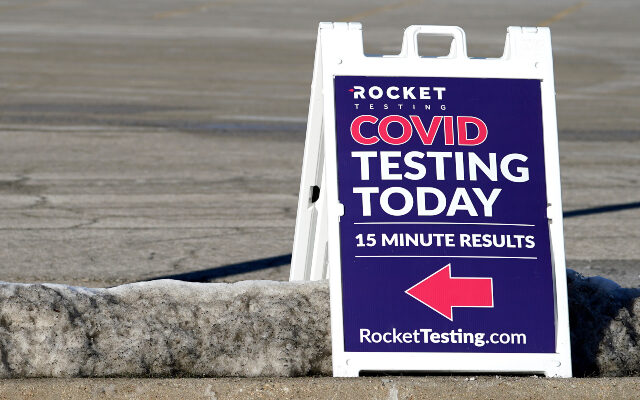Not All COVID-19 Testing Sites Are Created Equal; Here’s What to Look For

I’ve wondered about this myself. Is that pop-up COVID testing facility located in an old strip mall storefront legit?!
Well, turns out my suspicions were at least somewhat correct! Many of those sites are not licensed nor regulated by the government.
It’s understandable though. With the shortage of tests and the urgency to get results, many of us, myself included, will find the closest and earliest opening available regardless of what type of testing facility that is.
In Raoul’s statement, posted on the Illinois AG’s website, he doesn’t say that you SHOULDN’T go to a pop-up testing site, but he does offer some guidance:
First, try to go to a licensed testing facility which are all listed on the IDPH website, as well as our various county health departments. [DUPAGE, GRUNDY, KANE, KENDALL, WILL]
Sometimes though, those unlicensed pop-ups are the most convenient choice.
Raoul says there are some things to check for and ask about when choosing a non-licensed testing facility. One of the most important is what lab they use to analyze the results. It should be a CLIA (Clinical Laboratory Improvement Amendments) certified to make sure certain standards are met when testing human specimens.
Other factors to consider:
- What tests does the site administer?
- Who analyzes the results?
- What laboratory does the site use? Visit https://www.cdc.gov/clia/LabSearch.html to determine whether the lab being used is CLIA certified.
- When will test results be communicated to you, and how/from whom will you receive that communication?
- Who can you call with questions or concerns about results?
- What type of personal information will the site ask you to provide?
- Does the site charge any out-of-pocket fee?
- Does the site appear to observe the CDC’s recommendations to protect against COVID-19? For instance, do workers maintain a distance of six feet between people and wear masks indoors in areas of substantial or high transmission? https://www.cdc.gov/coronavirus/2019-ncov/prevent-getting-sick/prevention.html
Did you ever question why a testing facility is asking for your insurance information or worse, payment upfront. Well, you should! That’s a red flag!
Attorney General Raoul says people should be aware that testing sites often ask for insurance information and identifying information, such as a state-issued ID. If asked for information you are not comfortable providing, the Attorney General’s office encourages people to ask whether they can obtain the test without providing it. Additionally, people should be aware that most testing sites will not request payment out of pocket and will instead bill insurance companies, or, if individuals are uninsured, seek reimbursement from a federal fund. Raoul says that being asked to pay out of pocket is a red flag, and people should exercise caution if a site requests cash out-of-pocket or upfront credit or debit card payments for a test.
There’s also a warning about at-home tests. As those become scarce and demand remains high, that means people will try to take advantage of the situation for personal gain. Beware, if you are paying more than $25, you may be getting scammed:
As Illinois residents opt to use at-home rapid testing, the Attorney General’s office is also warning of bad actors potentially seeking to profit from the pandemic. Attorney General Kwame Raoul is reminding businesses and individuals to maintain fair prices and refrain from price gouging on goods that are crucial to stopping the spread of COVID-19, including at-home rapid tests. Raoul is also warning people to be aware of potential fake test kits offered for sale and is encouraging individuals to visit the FDA’s website for a list of approved at-home test kits. Consumers should expect to pay between $14 and $25 for packs of at-home rapid test kits, such as those from iHealth or Binax NOW.
It’s the Wild West out there in a lot of ways. Be careful!






